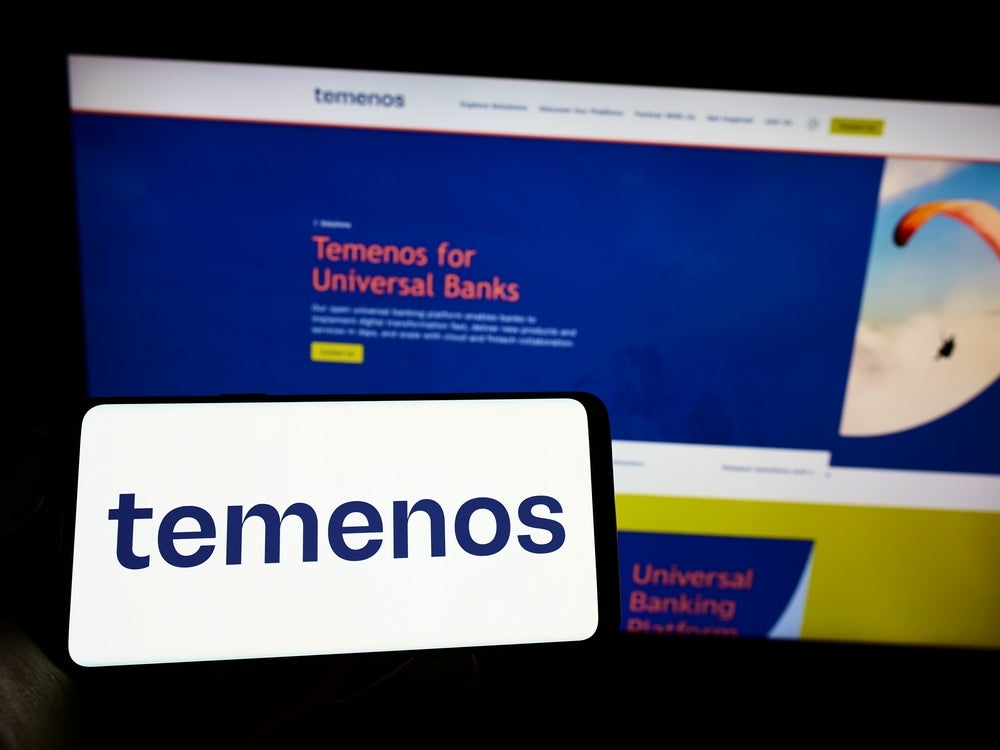Corporate purchasing card
loopholes closed…
VivoTech builds on its worldwide
success…
NACHA launches e-bill service…
Age verification goes
mobile…
WaMu thinks big on
PayPass…
GiftMate comes to North
America…
UK banks tighten their
belts…
Visa
allays age verification concerns…
Commercialising cybercrime…
Abbey clients say ‘no’ to two-factor
security…
Planet Payments lands HSBC deal in China…
Western Union enters South African market…
New US payment card security body
formed…
PAYMENT CARDS
closed
For Bank of America (BofA) clients, keeping control of corporate
purchasing cards and reducing the risk of theft has become a lot
easier thanks to Active Card Control (ACC). A new patented
technology developed by the US bank, ACC enables available funds on
each card to be reset by corporate clients in real time as
frequently as necessary via an internet-based tool.
funds until a user is ready to pay a supplier. At that time the
client submits a purchase request via BofA’s internet-based
electronic payment management system, BofA Works, which uses the
ACC technology to fund individual cards with the exact amount of
the invoices to be paid. When those purchases are billed to the
card, the available funds revert to zero.
CONTACTLESS PAYMENTS
success
US contactless payments equipment specialist ViVOtech’s
relationship with USA Technologies (USAT) has been strengthened by
the receipt from the vending machine manufacturer of an order for
25,000 card readers capable of accepting contactless cards and
conventional magstripe credit and debit cards for installation in
its ePort machines. The order follows USAT’s initial purchase of
10,000 contactless/magstripe payments readers from ViVOtech in 2007
for installation in ePort vending machines.
How well do you really know your competitors?
Access the most comprehensive Company Profiles on the market, powered by GlobalData. Save hours of research. Gain competitive edge.

Thank you!
Your download email will arrive shortly
Not ready to buy yet? Download a free sample
We are confident about the unique quality of our Company Profiles. However, we want you to make the most beneficial decision for your business, so we offer a free sample that you can download by submitting the below form
By GlobalDatain response to increasing demand from the vending industry for our
contactless technology,” said USAT’s chairman and CEO George
Jensen. USAT utilises MasterCard’s PayPass contactless
technology.
in use in 30 countries, ViVOtech lays claim to being the world
leader in its field. Building on its success ViVOtech has launched
the ViVOpay Kiosk contactless payment module as a bolt on option
for existing and new kiosk systems.
solution providers in transportation, retail, parking and other
industries to now accept contactless and NFC mobile payments at
their unattended kiosks with minimal effort,” said ViVOtech’s
president, Mohammad Khan. The module is certified to work with all
major contactless payment programmes.
BILLPAY
service
Following a lengthy pilot programme, US industry body the National
Automated Clearing House Association (NACHA) has launched an online
service that enables electronic bill presentation and payments to
be processed via the national automated clearing house network. The
first transaction via what has been dubbed the Electronic Billing
Information Delivery Service (EBIDS) was generated by
telecommunications company Verizon, a founding participant of the
service.
expand consumer use of electronic bill presentment and payment,”
said Angeline DePauw, Verizon director of billing processing.
“EBIDS will also improve our work processes and reduce operation
and accounting costs.”
friendly service, NACHA noted that the US Postal Service handles an
estimated 20 billion paper bills for consumers each years.
MOBILE PAYMENTS
mobile
For merchants marketing products intended for adult consumers via
mobile phone carrier networks, age verification presents a
challenge – one that US payments processor BSG Clearing Solutions
has addressed with the addition of a new module to its mobile
payments service Bill2Phone. “This integrated risk module adds a
safety net for merchants who want to both protect end-users and
lessen potential charge backs,” said BSG’s president, Greg
Carter.
information during checkout and then cross-checks this information
with proprietary and industry databases. If a user is found not to
be of a suitable age the merchant can restrict access or present an
age appropriate version of the content to the user.
consumers to enter a mobile number, confirm their identity with via
a short message service and receive content. Charges for content
are debited to the customer’s mobile phone bill.
with its credit card and automated clearing house payment
processing services.
CONTACTLESS PAYMENTS
PayPass
One of the US’ largest retail and small business banks, Washington
Mutual (WaMu), is set to become the country’s largest issuer of
MasterCard contactless PayPass cards. WaMu, which issued the first
of its WaMu with PayPass debit cards in January this year, plans to
have a total of between 12 million and 15 million in issue by year
end.
PayPass cards in perspective, there were according to MasterCard 23
million PayPass cards and devices in circulation globally in the
fourth quarter of 2007. Also indicative of the scale of WaMu’s
plans, Barclaycard anticipates that it will issue one million new
contactless cards in the UK in 2008.
their MasterCard PayPass cards tend to make them their preferred
cards, which will deliver an economic benefit to WaMu by driving
its cards to the top of wallet,” commented MasterCard Worldwide’s
head of US relationship management, Bill Mathis. He added that
WaMu’s roll out of PayPass cards “will greatly accelerate the shift
by consumers and merchants to contactless payments”.
business banking outlets nationwide.
MOBILE PAYMENTS
America
Indian mobile payments company PayMate has launched mygiftmate.com,
a website dedicated to marketing its GiftMate Mobile Gift Vouchers
to expatriate Indians in North America. Described by PayMate as
having gained “unprecedented market acceptance” in India, GiftMate
virtual vouchers reside on the recipient’s mobile phone and can be
used to purchase products ranging from books to air tickets from
3,000 online retailers that accept PayMate as a payment
option.
PayMate’s website, select from four pre-set voucher amounts, enter
the recipient’s email and mobile phone number, and complete the
payment process using a credit card. The amount of the voucher is
transmitted to the recipient’s mobile phone via a short message
service. The recipient also receives an email notification
confirming the amount of the voucher they have received, along with
instructions on how to use GiftMate and their personal 4-digit
PayMate PIN that they will need to use the gift voucher.
for amounts of up to INR2,000 ($50). Vouchers can only be sent to
recipients with valid Indian mobile phone numbers and cannot be
redeemed for cash.
INDUSTRY TRENDS
belts
UK industry body the Confederation of British Industry (CBI) has
painted a gloomy picture of conditions in the UK banking
industry.
professional services firm PricewaterhouseCoopers in the first
quarter of 2008 banks’ volumes fell at the fastest pace since
September 1991 while income from fees and commissions fell at the
fastest rate since the CBI’s first survey in 1989.
CBI noted that banks’ profitability fell and investment intentions
have “turned negative, even for information technology. There was
also a reduced inclination to expand capacity, reach new customers
and provide new services”.
staffing levels, with the fastest fall in numbers employed since
September 2000”, the CBI added.
PREPAID CARDS
concerns
Parents and retailers in the UK need no longer have qualms about
age verification, claims Visa. The reason is the Visa prepaid debit
card, the UreLife card, that incorporates government approved age
verification: a combination of a photograph and a proof of age
hologram.
manage and spend money,” said Carl Horne a director at
UreLife.
freedoms of cashless spending, while the proof of age mechanism
will restrict purchases of alcohol, cigarettes and other
age-restricted products.”
retailers to verify a user’s age. This achieved by the card
incorporating a numbering system that allows online retailers to
easily and automatically reject payments from underage
purchasers.
groups: 12 to15, 16 to17, 18 to 20, 21 and over and, rather
inexplicably, 60 and over.
SECURITY
cybercrime
Perpetrating online fraud has never been easier warns UK internet
security solutions developer Finjan.
terms “easy-to-use crimeware toolkits” that include update
mechanisms and sophisticated techniques to ward off forensic
investigations.
techniques to address the cybercrime economy and ensure that the
market they are after gets the proper product localised for it,”
explained Finjan’ chief technical officer Yuval Ben-Itzhak.
latest development in the evolution of cybercrime but are unlikely
to be the last. The next step is likely to see crimeware vendors
begin providing their customers with required victim data.
constant feed of data based on a set of requirements that can be
customised by the criminals to cover areas such as personal
information for identity theft, banking data, corporate financial
data and corporate internal documents.
INTERNET BANKING
security
UK bank Abbey has published details of a survey that vindicates its
decision not to supply online banking clients with two-factor
authentication devices.
fraud risks only 32 percent of respondents to its survey said they
want their bank to give them a security device to further protect
online transactions.
increase in the number of security questions.
security with the highest proportion of respondents, 40 percent,
selecting better monitoring of transactions by their bank as their
preferred option.
people want security with the least hassle,” said Abbey director of
financial crime Neil Wilson. “Finding customer-friendly ways to
protect people and their accounts is key.”
most important factors in preventing card fraud. Abbey is strong in
this area and has continued to invest significantly in monitoring
over the years.
PAYMENTS PLATFORMS
China
US payments processor Global Payments is to offer Planet Payment’s
Pay in Your Currency (PYC) service to merchant clients of its joint
venture with HSBC in China.
credit card payment service provider’s global expansion strategy.
Planet Payment’s PYC is a single platform that can instantaneously
perform conversions of up to 147 currencies.
said: “Our decision to utilise Planet Payment’s service is based on
the quality and depth of its product offering.”
service prior to the start of the 2008 Beijing Olympic Games.
become the third in China. In late 2007 the PYC service was
selected by two of China’s largest banks, Bank of Communications
and Agricultural Bank of China.
of the HSBC Group, is also a Planet Payment acquirer.
REMITTANCES
market
Western Union will finally add the South African market to its
network of agent locations spanning more than 200 countries and
territories.
agreement with South African bank ABSA, a subsidiary of UK bank
Barclays.
Western Union’s inbound and outbound services will be available in
all 750 ABSA branches nationwide.
the South African remittance market was valued at about $735
million inbound and $1 billion outbound.
SECURITY
formed
US payment card risk management consultancy Aegenis Group has
established the Society of Payment Security Professionals
(SPSP)
furthering professional development of individuals and
organisations responsible for security within the payments
industry”.
launch of a code of ethics for the payment security professional
and, from July, a certified payment card industry security manager
exam.
“Payment security has evolved to the point at which it seems
logical to address it as a distinct profession.
in the payments industry require specialised knowledge and
skills.”







